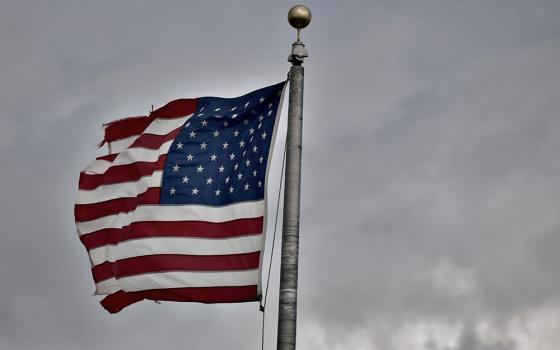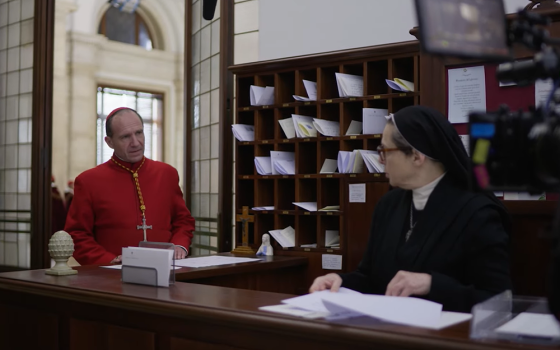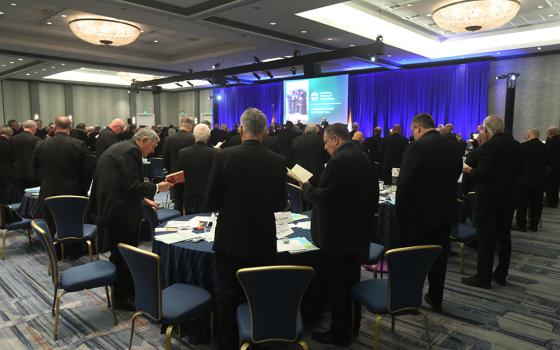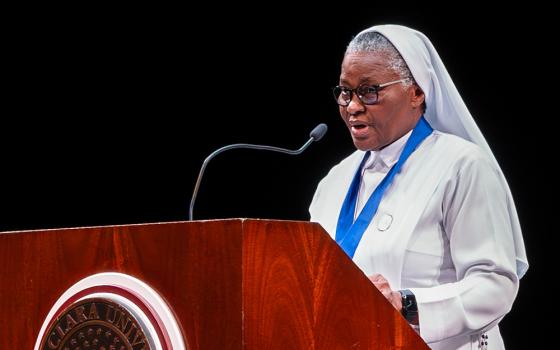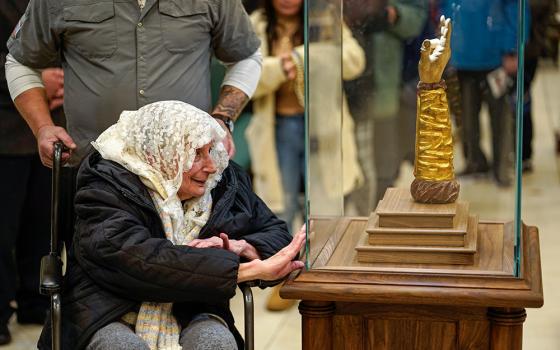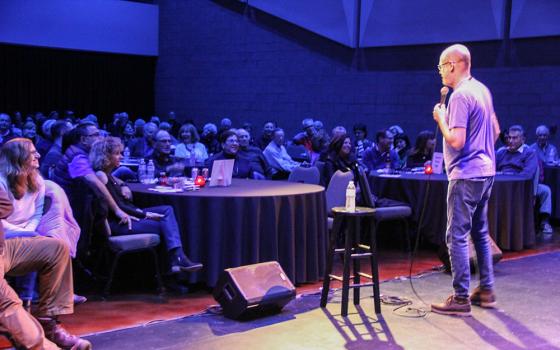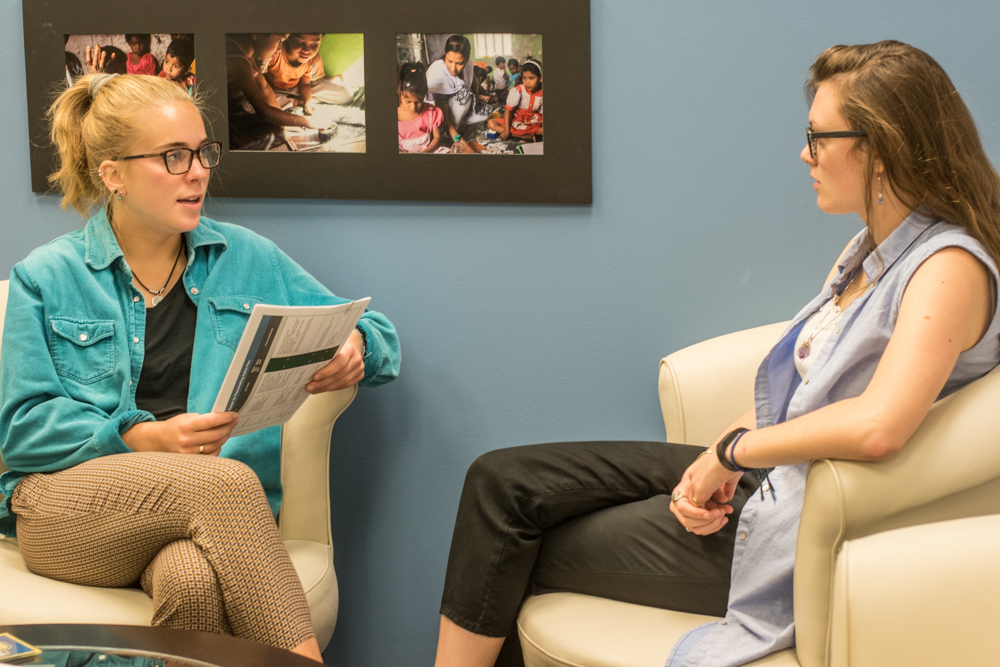
The Center for Peacemaking is a popular place for students to gather and discuss nonviolence. (Photo courtesy of the Marquette University Center for Peacemaking)
As a graduate student working on a master’s degree in applied economics, Anna Weirick is something of an evangelist to her fellow business students at Marquette University. Her message: Peacemaking is important — and it's about more than just the absence of violence but also about community building.
“When we have an economy … in which people are fulfilled in their work and have fair wages, that is all part of building peace in the community,” said Weirick, who is working as the research and program coordinator for the Promoting Assets, Reducing Crime or PARC initiative, a joint project of the university’s Center for Peacemaking and the Near West Side Partners, a community organization.
“I’m not just training to be an economist, I’m training to be a peace-building economist who wants to help provide for the common good,” she said.
As the center celebrates its 10th anniversary this year, founder Terrence Rynne’s desire to see students understand peacemaking and embrace it as part of their vocation is happening, with Weirick and others who take peace studies courses, volunteer or work in the center’s many programs, do center-funded research, attend academic conferences or talks, and more.
“We are trying to help everyone understand that peacemaking and nonviolence are lenses for approaching and engaging the world, whether you’re going to be a nurse, or a physical therapist or an attorney,” said Patrick Kennelly, the center’s director. “Part of the Marquette experience is realizing that peacemaking is more than just not hitting or not going to war. It’s engaging the social realities around us.”
About 30 students major or minor in peace studies; the peace studies program is part of the College of Arts and Sciences but has a broad interdisciplinary focus. Foundational courses include “Theology of Violence and Nonviolence,” “Conflict Resolution and Restorative Justice” and “World Conflict and Security.”
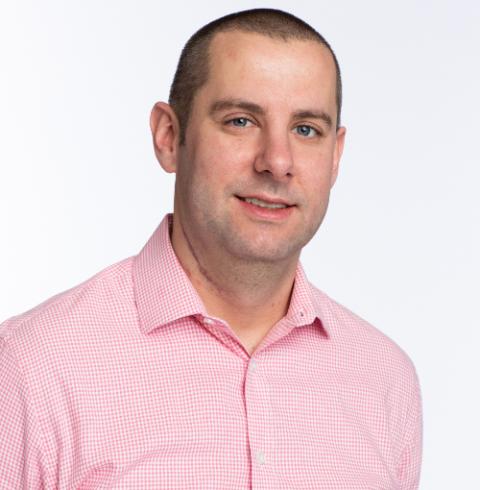
Patrick Kennelly, director Marquette University Center for Peacemaking (Photo courtesy of the Robert Wood Johnson Foundation/(c) 2018 Flynn Larsen)
Students are attracted to the contemporary topics in the major and minor, said Louise Cainkar, associate professor of sociology, social welfare and justice, who directs the Peace Studies program.
“They see that they can get some useful skills: conflict resolution, mediation, negotiation, how to analyze a problem and look for alternative resolutions that are most beneficial to all parties,” she said.
As one of the university’s largest research centers, the Center for Peacemaking also funds faculty and student projects, again with an interdisciplinary focus. Examples include research in:
- Real estate — to study the relationship between evictions and crime.
- Marketing — to analyze the marketing of water sanitation projects in Ghana.
- Political science — to determine how street gangs in San Salvador negotiate their boundaries.
- Physical therapy — to study employee-centered corporate health programs.
Irfan Omar, an associate professor of theology, received funding from the center so graduate students in a class on Christian-Muslim dialogue could research and document a unique 20-year dialogue among Muslims, Catholic sisters and others in Milwaukee in the 1980s and ‘90s. Students were paid to conduct the research and write a chapter for a forthcoming book.
Advertisement
The center is a “hospitable” place on campus for people of different faiths to come together, said Omar. “This is the place where I look for support, and most of my students have benefitted from the center’s activities or funding.”
Thanks in part to the center, “it’s part of the DNA of Marquette that the service of faith and social justice are inseparable,” said Jesuit Fr. T. Michael McNulty, who does outreach to faculty as scholar in residence at the center. “The Center for Peacemaking, in my mind, is really the vanguard of that mission.”
[Heidi Schlumpf is NCR national correspondent. Her email address is hschlumpf@ncronline.org. Follow her on Twitter @HeidiSchlumpf.]

